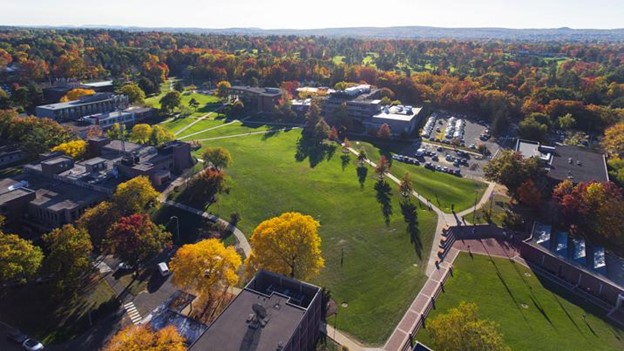AI can detect COVID-19 in the lungs like a virtual physician, new study shows

Image Courtesy of Franklin Institute
October 7, 2020
While there is still no known vaccine, COVID-19 just became much easier to trace in the most innovative way possible. A researcher from the University of Central Florida is participating in a new study showing that artificial intelligence can be almost as accurate as a physician in diagnosing COVID-19 in the lungs.
The AI algorithm is expressed through a process called computed tomography (CT), which yields results of 90 percent accuracy. This accuracy combats the efficiency of reverse transcription-polymerase chain reactions, or RT-PCR, tests. These tests have a significant number of false-negative rates and take up a larger amount of time in processing.
Although CT is an efficient tool, it can be fairly misleading, as its scans can look similar to that of influenza.
To minimize the risk of misdiagnosis, the new UCF co-developed algorithm was meticulously produced to accurately identify COVID-19 cases, as well as distinguishing them from influenza. This serves as a great potential aid for physicians, says Ulas Bagci, an assistant professor in UCF’s Department of Computer Science.
Bagci was a co-author of the AI study and helped lead the research.
“We demonstrated that a deep learning-based AI approach can serve as a standardized and objective tool to assist healthcare systems as well as patients,” Bagci says. “It can be used as a complementary test tool in very specific limited populations, and it can be used rapidly and at a large scale in the unfortunate event of a recurrent outbreak.”
Bagci is an expert in developing AI to assist physicians, including using it to detect pancreatic and lung cancers in CT scans.
This research was supported with funds from the NIH Center for Interventional Oncology and the Intramural Research Program of the National Institutes of Health, intramural NIH grants, the NIH Intramural Targeted Anti-COVID-19 program, the National Cancer Institute, and NIH.









